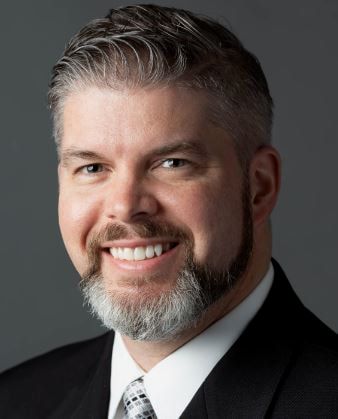|
The COVID-19 epidemic has been a horror show. But as with most disasters, there comes some positive outcomes if you look in the right places. The global pandemic and resulting social distancing is forcing innovation and change in a profession that has been long behind the technological curve. The practice of family law is experiencing a seismic shift in thinking and process. Change causes a lot of tension, especially in the legal field. But this rapid paradigm shift, as stressful as it may be today, will ultimately benefit the family law practitioner and the people they serve.
In early March when stay-at-home orders began to be issued, the business of the courts and all the ancillary meetings and hearings involved with civil cases, such as family law matters, suddenly shut down. Temporary order hearings were rescheduled indefinitely. Mediation sessions were canceled. Clients seeking relief for their divorce or child issues were stuck with out any immediate relief, or even knowledge of when their case would resume. Without the ability to meet face-face, much of the practice of civil law- and the subsection of family law in particular, just..stopped. The reason the wheels of justice ground to a halt was not because of the viral outbreak directly. It was because of the outmoded ways civil law has been long practiced, and the inability of some practitioners to shift their paradigms quickly enough to the new normal. Many practicing family law are or were deeply entrenched in the old ways of using only person to person communications to conduct business. Although video conferencing and other alternate options had long been available, many family law practitioners eschewed those opportunities and rarely used these options for the two decades or more they have been available. As a family law litigator myself, I have long lamented the waste that was endemic to the old way of practicing prior to the pandemic. For even the most cursory matters I would have to physically appear in court. This meant I would have to charge my clients travel time to the courthouse and parking. When we got to the court, unless I could find some way to be productive otherwise, I would have to charge my client for the time I spent waiting for our hearing- sometimes for hours. I would try to be productive with my client but it was usually a losing proposition. The actual bench time I would have could be as little as 15 minutes after waiting for several hours. That never sat right with me. Perhaps even more wasteful was the mediations I had to attend on almost all cases. The mediations themselves were, in most instances highly valuable activities, but the logistics under which they were conducted were wholly wasteful. I would often have to travel several hours to attend mediation across town only to be sequestered to a room where we would never engage with the other party in person anyway. It always seemed so ridiculously wasteful and so unnecessarily expensive. But now virtual attendance for these appearances is becoming widespread and necessary. This is an exciting development because it will provide clients with much more cost effective and productive way of resolving family law disputes. Trials, hearings, and mediations scheduled precisely and consistently through software are much more likely to be heard on time and with fewer distractions. Judges, attorneys, and mediators will be able to schedule their days and complete their tasks with greater efficiency and will therefore be able to increase their productivity. Clients will not have to pay for ancillary costs such as travel which will increase their overall satisfaction. Clients will also not have to take more time off from work for hearings than necessary that are bumped or delayed due to the difficulty of managing a live court room. It's not to say that there aren’t many challenges ahead. On the one hand, security and confidentiality of certain communications must be maintained, and on the other hand access to the public and maintaining our open court system must also be maintained. There will need to be new thinking about how to conduct trials in a virtual way. Direct and cross examination of witnesses, the introduction of documentary evidence and impeachment will all need new processes and techniques. If more legal work will be done through technology, there will need to be serious thought put into bridging the “digital divide” so that all socio-economic levels will have access to the new justice system. But these challenges can and will be overcome. In the middle of a viral outbreak, they simply must. The necessity will drive the innovation as it has throughout human history. And the benefit that will come to judges, attorneys, and clients will be made abundantly clear in the months ahead. I’m not suggesting that we will never have a live trial again. But the prospect of conducting a full evidentiary trial with a jury of twelve, a full panel of attorneys, a judge, clerk, stenographer and a full public gallery anytime in the near future is a dim possibility. I do not think we will ever fully go back to the old ways of practicing. The use of video conferencing, paperless documents, e-signatures, file sharing and other technologies have long existed but will now become the norm. The practice of law, at least the practice of family law, is at last being dragged into the 21st Century. There will be adjustments, but the family law practitioner will learn that the benefits will far outpace the inconvenience of change. And the one thing the epidemic has done is to force the change. There is really little choice. Those practitioners who embrace and adapt to this new normal will thrive. Those who continue to resist will forever wait for the return of a world that no longer exists.
2 Comments
3/19/2022 02:25:28 pm
The old ways of using only person to person communications to conduct business. Although video conferencing and other alternate options had long been available, Thank you, amazing post!
Reply
3/19/2022 02:49:46 pm
The ancillary meetings and hearings involved with civil cases, such as family law matters, suddenly shut down. Temporary order hearings were rescheduled indefinitely. Thank you for the beautiful post!
Reply
Leave a Reply. |
Need more information about this or other family law topics in Texas?
Click the button below to book a FREE ATTORNEY CONSULTATION (832) 819-3529
Attorney Sean Y. Palmer has over 20 years of legal experience as a Texas Attorney and over 25 years as a Qualified Mediator in civil, family and CPS cases. Palmer practices exclusively in the area Family Law and handles Divorce, Child Custody, Child Support, Adoptions, and other Family Law Litigation cases. He represents clients throughout the greater Houston Galveston area, including: Clear Lake, NASA, Webster, Friendswood, Seabrook, League City, Galveston, Texas City, Dickinson, La Porte, La Marque, Clear Lake Shores, Bacliff, Kemah, Pasadena, Baytown, Deer Park, Harris County, and Galveston County, Texas.
Call (832) 819-3529 If you live in the Houston area and would like to consult with one of our attorneys, please leave your information below.Archives
July 2024
Categories
All
|
The Palmer Law Firmwww.thepalmerlawfirm.com
(c) 2024 Sean Y. Palmer |
DISCLAIMER:
This website is for educational and informational purposes only and is not, nor is it intended to be, legal advice. Viewing of this website does not create an attorney-client relationship. All legal matters should be discussed with a licensed attorney before you take any action. You should consult with an attorney for advice for your individual situation. Sean Y. Palmer is the attorney responsible for the content of this site. DATA NOTIFICATION: Pursuant to the Health Insurance Portability and Accountability Act, and the Texas Medical Records Privacy Act of the Texas Health and Safety Code, consumers are noticed that their protected healthcare information may be transmitted electronically. |


 RSS Feed
RSS Feed